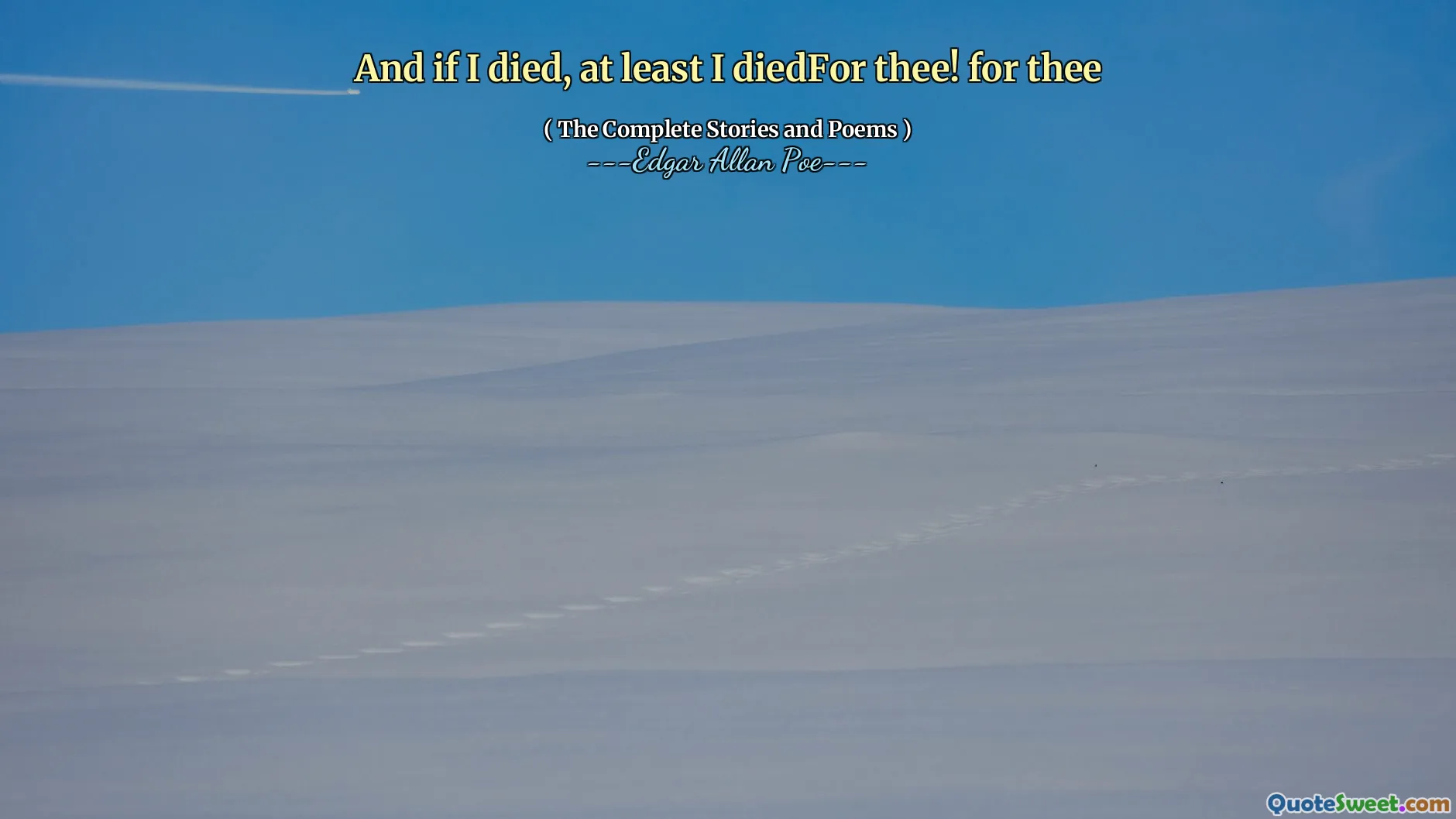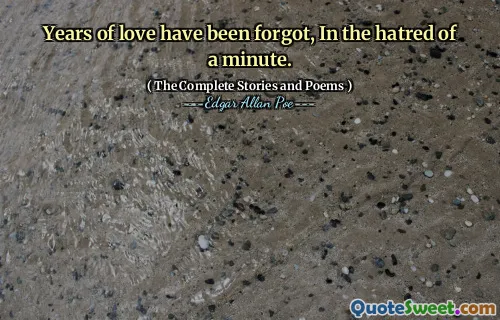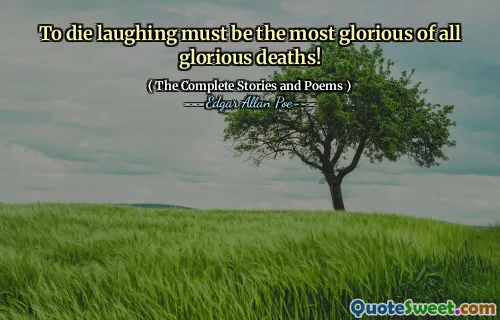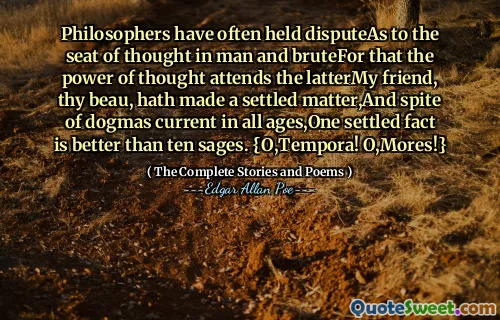
And if I died, at least I diedFor thee! for thee
In Edgar Allan Poe's "The Complete Stories and Poems," the quote "And if I died, at least I died for thee!" captures a powerful sentiment of devotion and sacrifice. It reflects the intense emotional struggles faced by the speaker, emphasizing love's ability to compel one to face mortality. The declaration hints at a relationship filled with fervor, underscoring the willingness to endure suffering, or even death, for the sake of a beloved. This kind of devotion profoundly illustrates the lengths one might go to express their love.
This quote resonates throughout Poe's works, often intertwining themes of love, loss, and despair. It encapsulates the essence of romantic fatalism, suggesting that true love can lead to both transcendence and tragedy. Poe's exploration of such themes in his stories and poems makes a compelling case for the transformative power of love, even as it walks the thin line between joy and sorrow. Love, in this context, becomes a driving force, motivating the speaker to confront the ultimate sacrifice.











